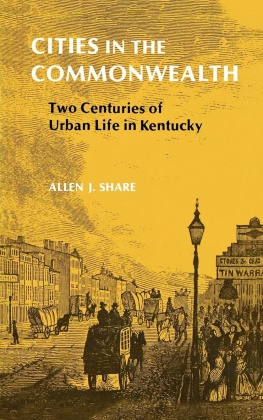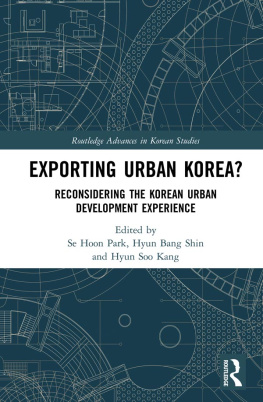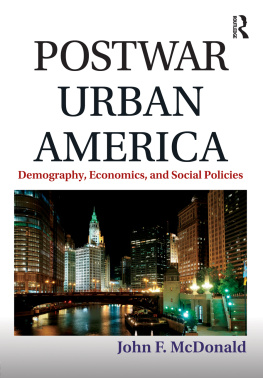
The Cultural Politics of Urban Development in South Korea
This book analyses the cultural politics of urban development in Gwangju, South Korea, and illustrates the implementation of state-led, arts-based urban boosterism efforts in the context of political trauma and the desire for economic growth.
The book explores urban development that is complicated by the recent history of democratic uprising in Gwangju, and it examines the dichotomy between cities as growth machines and progressive metropolises. Actor-oriented qualitative research methods are used to show how culture and economies can evolve from territorial conflicts. The author argues that the quest for both growth and social justice can coexist in intertwined ways and create urban development. Moreover, recent events in Gwangju, such as the May 18 Democratic Uprising and massacre, are shown to act as a backdrop for state-led urban boosterism and desire for economic growth at the same time as depicting a resistance to state-corporate marketing plans, which culminates in the eventual emergence of relatively coherent places-of-memory. These convergences and divergences are comparable to the urban boosterism characteristic of Western cities.
The book contributes to the dialogue surrounding geography, urban studies and postcolonial urban development, and it will be of interest to academics working in these fields as well as human geography, planning, urban politics and East Asian studies.
HaeRan Shin is Professor in the Department of Geography at Seoul National University, South Korea.
Routledge Pacific Rim Geographies
Series Editors: John Connell, Lily Kong and John Lea
Malaysia, Modernity and the Multimedia Super Corridor
A Critical Geography of Intelligent Landscapes
Tim Bunnell
Made in the Philippines
Gendered Discourses and the Making of Migrants
James A. Tyner
Environment, Development and Change in Rural Asia-Pacific
Between Local and Global
Edited by John Connell and Eric Waddell
Gated Communities in China
Class, Privilege and the Moral Politics of the Good Life
Choon-Piew Pow
Cambodias Neoliberal Order
Violence, Authoritarianism, and the Contestation of Public Space
Simon Springer
Neoliberal Governance and International Medical Travel in Malaysia
Meghann Ormond
Change and Continuity in the Pacific
Revisiting the Region
Edited by John Connell and Helen Lee
The Cultural Politics of Urban Development in South Korea
Art, Memory and Urban Boosterism in Gwangju
HaeRan Shin
For more information about this series, please visit: www.routledge.com
The Cultural Politics of Urban Development in South Korea
Art, Memory and Urban Boosterism in Gwangju
HaeRan Shin
First published 2020
by Routledge
2 Park Square, Milton Park, Abingdon, Oxon OX14 4RN
and by Routledge
52 Vanderbilt Avenue, New York, NY 10017
Routledge is an imprint of the Taylor & Francis Group, an informa business
2020 HaeRan Shin
The right of HaeRan Shin to be identified as author of this work has been asserted by her in accordance with sections 77 and 78 of the Copyright, Designs and Patents Act 1988.
All rights reserved. No part of this book may be reprinted or reproduced or utilised in any form or by any electronic, mechanical, or other means, now known or hereafter invented, including photocopying and recording, or in any information storage or retrieval system, without permission in writing from the publishers.
Trademark notice: Product or corporate names may be trademarks or registered trademarks, and are used only for identification and explanation without intent to infringe.
British Library Cataloguing-in-Publication Data
A catalogue record for this book is available from the British Library
Library of Congress Cataloging-in-Publication Data
A catalog record for this book has been requested
ISBN: 978-0-367-19732-2 (hbk)
ISBN: 978-0-429-24298-4 (ebk)
Typeset in Times New Roman
by Apex CoVantage, LLC
This work was supported by the National Research Foundation of Korea Grant, funded by the Korean government (NRF-2017S1A3A2066514).
In developed countries across the Northern Hemisphere, formerly affluent industrial cities have been forced to restructure to maintain urban strength and competitiveness (Griffiths, 1995; Grodach and LoukaitouSideris, 2007). Enter culture. Arts-based urban boosterism as a component of urban development has become critical to the survival of many contemporary cities and the animation of others. Compensating for traditional industries that have become obsolete, highly automated, or lost to competition is not the only reason cities seek out alternative industries. There are cities that never enjoyed the prosperity of an industrial boom that now view culture as an opportunity to thrive. There are still other cities that have been plagued by a negative urban image that crippled the economy. For these cities, culture offers not only hope for an economic upturn but also a road to redemption. Culture is no longer simply an aesthetic. It is now a common-sense approach and sometimes the sole option for achieving economic development, repairing a negative urban image, or both.
One such city that has sought both economic prosperity and re-imaging is the city of Gwangju1 in the south-western part of South Korea (see Figure 1.1). The city has a history of political activism, and the one event that citizens are proud of, but have also been vilified for, centres on the democratic demonstration of 18 May 1980 (Lewis, 2002). At the time, this event turned the South Korean nation against Gwangju, with the majority only seeing the citys violent political history that required military intervention and harsh crackdowns. The citys citizens proudly toiled to preserve the truth of their fight to introduce democracy, even knowing it reinforced the citys negative urban image that was an impediment to urban development.
As South Korea started to embrace democracy and welcome the concept of globalisation in the 1990s, local elites capitalised on easing restrictions to re-image the city. Recognising that though the May 18 uprising was a blight on Gwangju in South Korea, on the world stage, it was a blight on the national governments handling of the protest. In an attempt to gloss over the negative, the national government funded an international elitist art event, the Gwangju Biennale. Conflicts and renegotiations between the state-led cultural approach and the local arts-based urban regeneration developed. I use the concept the politics of cultural economy to illustrate the dynamics that exist amongst interested parties who possess different agendas that first conflict but with work are then modified and adapted to make an integrated whole (Shin and Stevens, 2013). I focus on the interaction between culture and economy and how this interaction brings about ongoing re-arrangement of the cultural economy and urban development.







